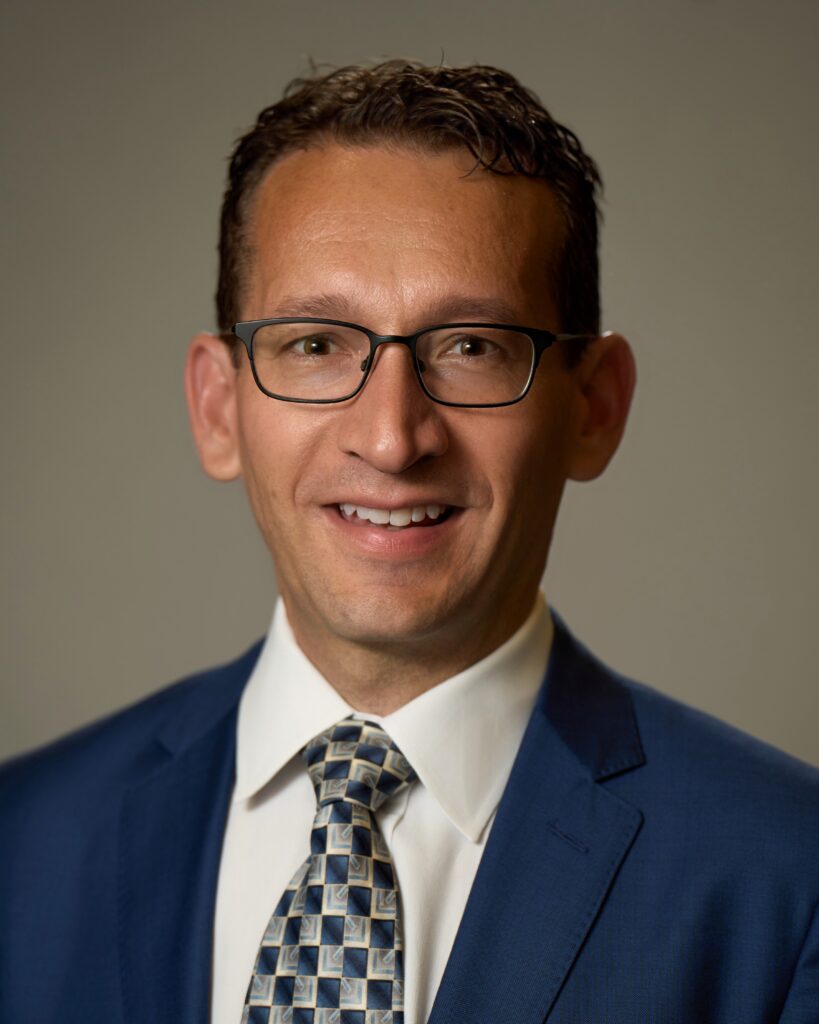
Oliver Varban, MD FACS FASMBS
Chair

Henry Lin, MD
Co-Chair

Tammy Kindel, MD PhD FACS FASMBS
Board of Directors Liaison
Members
Immediate Past Chair: Anthony T. Petrick, MD FASMBS
General Foregut Chair: Sergio Bardaro, MD FACS
General Foregut Co-Chair: Karen Gibbs, MD FACS
General Foregut Co-Chair: Federico Serrot, MD FACS
John W. Baker, MD FASMBS
Jennifer Colvin, MD
Michael Edwards, MD, Diversity & Inclusion Committee Liaison
Maher El Chaar, MD
Christopher Esposito, DO
Lana Fontana, MSN, RN, CBN, CNML
Charmaine Gentles, DNP APRN CRNFA
Jon Gould, MD
Elizabeth M. Hechenbleikner, MD, FACS, FASMBS
Daniel B. Jones, MD MS FASMBS
Amy Laktash, MSN APRN NP-C
Shauna Levy, MD MS
Sharon Mann, MSN RN
Mark Mahan, DO
Sara Martin Del Campo, MD MS
Karina McArthur, MD
Katherine Meister, MD
Sharique Nazir, MD
Sabrena F. Noria, MD PhD FRCSC
Nabeel Obeid, MD
Carl Pesta, DO FASMBS
Kinga A. Powers, MD PhD FACS
Perisa Ruhi-Williams, MD
Sarah Samreen, MD
Keri Seymour, DO
Konstantinos Spaniolas, MD
Kerry Stouges, MSN RN
Andrea Stroud, MD MS
William A. Sweet, MD
Lawrence Tabone, MD
Scott Um, MD
Melissa Vaughn, BSN MBSC/MBSCR CBN
Eric Volckmann, MD
R. Wesley Vosburg, MD FACS DABOM FASMBS
Vamsi Alli MD
Abdulaziz Arishi MD DABS
Jorge Carrozzo MD
Abhiman Cheeyandira MD FACS MRCS
Nicole Cherng MD FACS
Daniel Davis DO FACS FASMBS
Dan Eisenberg MD MS
Maher El Chaar MD
Sofiane El Djouzi MD MS MBA DABOM FRCS FACS
Victoria Gershuni MD MS MTR
Juliet (Georgia) Holder-Haynes MD MBA MS ABOM
Matthew Hubbard MD MS FACS FASMBS
Joey Jarrard MD
Theodoros Katsichtis MD
Colleen Kennedy MD MBA FASMBS
Doris Kim MD
Keith King MD (Candidate)
Onur Kutlu MD
Aneesha McClinton MD
George Merriman II MD FASCS FASMBS
Luis Pina MD
John Romanelli MD
Ian Soriano MD FACS FASMBS
Emily Speer MD
Ranjan Sudan MD
ASMBS Staff Partner
Nicola Field, PMP
Charge
In alignment with the American Society for Metabolic and Bariatric Surgery (ASMBS) mission to elevate global health and quality of life by significantly reducing the impact of obesity and its related illnesses, the Quality Improvement and Patient Safety Committee is entrusted with promoting continuous improvement in patient safety and risk reduction. The committee integrates and coordinates patient safety initiatives among member surgeons, aiming to reduce medical errors through process analysis and quality improvement reporting.
Description
The Quality Improvement and Patient Safety Committee is committed to improving patient safety and reducing risk for member surgeons. By studying trends in malpractice suits and risk management gaps, the committee aims to enhance patient safety initiatives, improve patient outcomes, and decrease surgeon exposure to liability.
Objectives
- Identify gaps and members’ needs in patient safety, risk management, and professional liability to develop optimal resources that equip surgeons with the necessary tools and knowledge to enhance patient safety, mitigate risks, and manage liability effectively.
- Provide recommendations for the promotion and dissemination of patient safety and risk management information.
- Identify and employ process measures to identify and disseminate quality improvement initiatives.
Goals
- Promote education on risk management and liability and develop expert witness guidelines to provide clarity and guidance for surgeons involved in legal proceedings.
- Enhance patient safety initiatives through data analysis and identification of trends and areas for improvement in patient safety.
- Establish a platform for knowledge sharing and learning among members.
- Help create a mechanism by which ASMBS can endorse and encourage high performing programs exhibiting patient safety and quality improvement in all aspects of bariatric care.